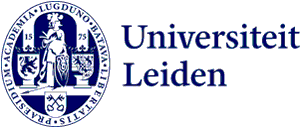
‘A donor organ is a precious gift that we should treat with care’
Professor André Baranski is a champion for improving organ procurement. He believes there should be standardised training and certification for procurement surgeons. This is what he said in his inaugural lecture on 16 April.
Baranski was appointed professor in November 2019, but had to wait a bit until he could give his inaugural lecture. The coronavirus measures meant it was postponed by over a year at the start of 2020. Although the options haven’t increased much in the meantime, Baranski decided to wait no longer. His inaugural lecture was therefore a first: the first to be presided over by Hester Bijl, rector magnificus of Leiden University since February.
Forgotten history
According to Baranski the story of transplantation is one of trial and error. ‘Today there are extensive transplantation programmes, but we often forget that these didn’t come about without the odd setback,’ he said. The history of transplantation medicine is more or less forgotten, he added.
There are various reasons for this: the first transplantations often failed, governments opposed transplantation and they were carried out in debatable places (such as prisons and mortuaries). Baranski wants to make this history visible. ‘If you believe in something and can help patients, you have to persevere. Without determination we wouldn’t have today’s global transplantation programmes. We should never forget that.’
Well-trained procurement surgeons
Organ transplants are increasingly successful in the Netherlands. This is mainly because procurement surgeons in the Netherlands are well trained, so abdominal organs are rarely damaged during removal. The Netherlands is the only country in the world with certified procurement surgeons.
A successful transplantation always begins with the proper retrieval of an organ. ‘This doesn’t always go to plan around the world. It is a complicated and meticulous process and the smallest mistake can damage an abdominal organ, meaning it can no longer be used for transplantation. This makes it essential that the surgeon who retrieves the organ is always well trained,’ said Baranski.
Share knowledge with the rest of the world
Baranski therefore develops international courses on complicated surgical procedures for transplantation. He has developed a standard procedure for the retrieval of abdominal organs. By providing clear training for surgeons and supporting staff, he hopes to drastically reduce the number of organs damaged during retrieval, preservation and transplantation worldwide. His manual on the standard procedure for the retrieval of abdominal organs has been downloaded over 25,000 times around the world. It was written in English and has been translated into Russian, Chinese and Polish.
Over the coming years Baranski wants to continue sharing his knowledge about the correct removal of abdominal organs with the rest of the world. He wants more attention to be paid to organ transplantation, both within the Netherlands and abroad, and for more funding to be made available in the Netherlands. This is to further develop and disseminate the training methods for retrieval surgeons. He also hopes that other countries will follow the example of the Netherlands and start certifying procurement surgeons. ‘A donor organ is a precious gift that we should treat with care. That begins with the right training for the medical staff who have to perform the associated procedures.’
Interested in Baranski’s inaugural lecture? Read the text or watch it online.
